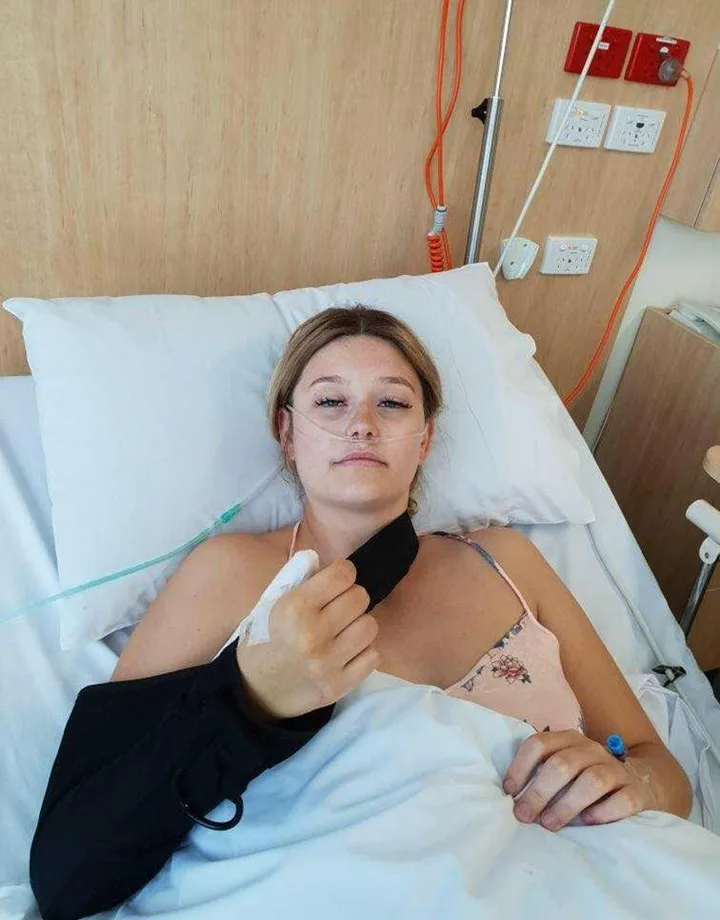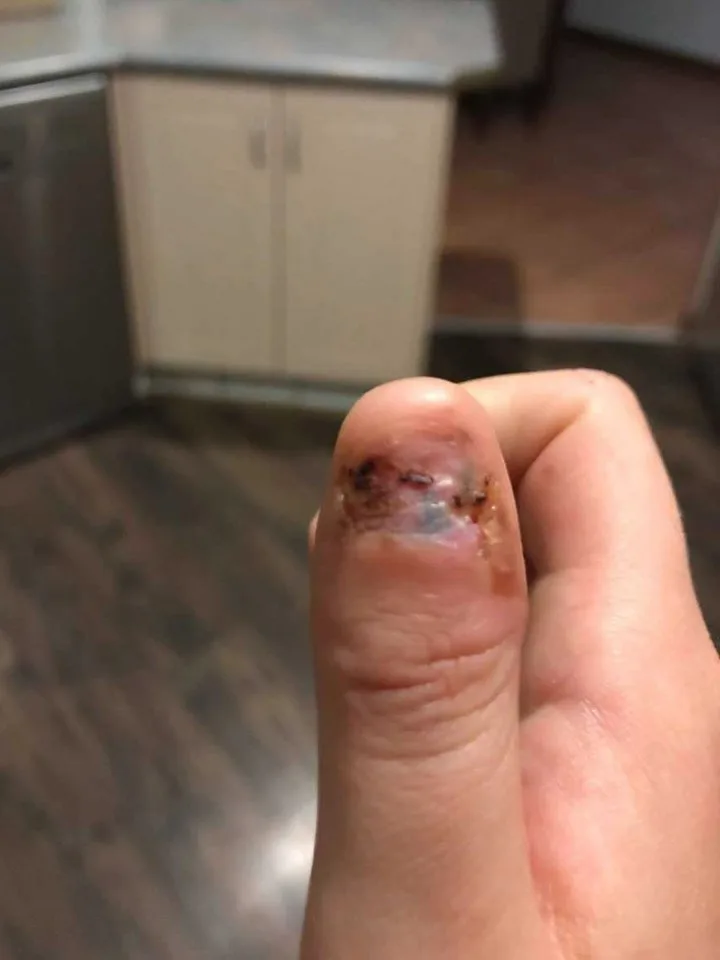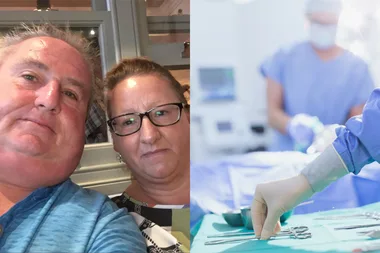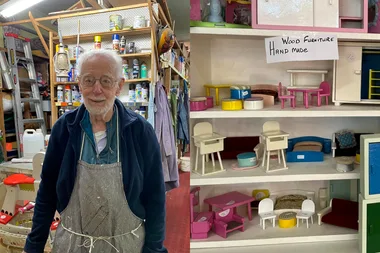A university student has had to have her thumb amputated after developing a rare form of skin cancer caused by biting her nails.
Courtney Whithorn, now 20, developed the nervous habit after being bullied – and bit her thumb nail clean off in 2014.
Despite ‘freaking out’ when her thumb started to turn black, the embarrassed teen kept it hidden from friends and family for four years.

But the psychology student had caused such major trauma to her nail bed that it developed into a rare cancer – acral lentiginous subungual melanoma.
Since her shock diagnosis in July, Courtney has had to have four surgeries. Despite attempts to save her thumb, Courtney’s fourth surgery which took place last week saw the digit completely removed.
Courtney, from the Gold Coast, said: ‘When I found out that biting my nail off was the cause of the cancer it shattered me.
‘In my head I thought ‘I’ve done this to myself’ but obviously I knew I shouldn’t have that mentality. I couldn’t believe it.
‘When you think about it how many kids bite their nails it’s crazy it came to that.
‘I bit the nail off four years ago and I was obviously very self-conscious of how black it was.
‘My hand was just constantly in a fist because I didn’t want anyone to see it – not even my parents.
‘I got a bit freaked out when my skin started to go black so I showed them for the first time this year.’

After Courtney’s second surgery to remove her nail bed, she had a PET scan to produce a detailed 3D image of the inside of her thumb and no more cancerous cells were found.
But panic arose when just a week after thinking she had the all clear, specialists in Sydney told Courtney’s surgeon that the protocol for her form of melanoma is amputation.
The surgeon decided to first perform a third surgery, creating a wider incision in Courtney’s thumb to remove any more malignant cells – but that operation only confirmed the need to amputate.
Part-time receptionist Courtney, who is still recovering from her amputation, said: ‘I had a panic attack at work, I read the word ‘amputation’ and ran outside – I couldn’t breathe.
‘My mum had to come to my work, my boss was tying my hair up and wafting my shirt. I freaked out – we’d never even spoken about amputation.
‘We went and saw a melanoma specialist who also agreed that amputation was protocol because this was such a rare cancer.’

Courtney’s passion for writing is going to be affected a lot now she has had her thumb amputated from above the knuckle.
The student has also had to defer her studies at Griffiths University to recover.
‘I’m still waiting for that set of results from the surgery last week and if it’s clear then the surgeon watches me for the next five years and I get regular scans and bloods,’ she said.
‘There’s not enough research to say what the survival rate is or what the likelihood of it coming back is because – we just don’t know much about it. I’ve just cried every time it’s been brought up.
‘The location of the cancer in my thumb is unknown so if it still shows up then they’re just going to have to keep cutting away until we get a clear result.’
WHAT IS ACRAL LENTIGINOUS MELANOMA?
- Acral lentiginous melanomas are a rare type of melanoma that usually occur on the palms of the hands and soles of the feet. They can also sometimes develop around a nail, most commonly the thumbnail or big toenail.
- Acral lentiginous melanomas are the most common type of melanoma in people with dark skin, but they can occur in people with any skin type.
- Melanoma is a type of skin cancer that can spread to other organs in the body.
- Melanoma is caused by skin cells that begin to develop abnormally.
- Certain things can increase your chances of developing melanoma, such as having lots of moles or freckles, pale skin that burns easily, red or blonde hair, or a close family member who’s had melanoma.
- The main treatment for melanoma is surgery, although your treatment will depend on your circumstances.
- If melanoma is diagnosed and treated at an early stage, surgery is usually successful.
This article originally appeared on New Idea.
 Caters
Caters









